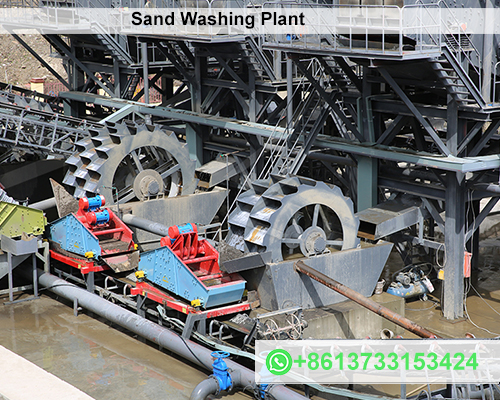Washing Plant in India
India, with its rapidly growing industrial base and emphasis on sustainable practices, has witnessed a significant rise in the adoption of washing plants across various sectors. These plants, designed for cleaning, processing, and recycling materials, play a critical role in industries like mining, construction, textiles, and municipal waste management.
What is a Washing Plant?
A washing plant is an industrial facility used for cleaning, processing, and separating materials such as minerals, sand, gravel, and other aggregates. Equipped with advanced machinery, these plants remove impurities and contaminants, ensuring the quality of the output meets industrial standards. Washing plants are also utilized in water treatment and recycling applications, making them pivotal in promoting eco-friendly practices.

Key Sectors Utilizing Washing Plants in India
1. Mining and Minerals
India’s vast mineral reserves make washing plants indispensable in mining. These plants are used for the beneficiation of coal, iron ore, and other minerals by removing impurities like clay, silt, and other contaminants. This enhances the quality of raw materials, ensuring higher efficiency in downstream processes.
2. Construction and Infrastructure
With the surge in construction activities, demand for high-quality sand and aggregates has increased. Washing plants are used to process construction and demolition waste, convert it into reusable materials, and produce washed sand and gravel, which meet stringent construction standards.
3. Textile Industry
Textile washing plants in India play a critical role in fabric finishing. They are equipped to handle various processes such as pre-treatment, dyeing, and post-treatment washing, ensuring fabric quality and color consistency.
4. Waste Management and Recycling
The need for sustainable waste management has led to the growth of washing plants in municipal solid waste processing. These plants are vital for separating and cleaning recyclable materials like plastics and metals, contributing to the circular economy.
Technological Advancements in Washing Plants
Indian washing plants are embracing cutting-edge technologies, including:
- Automation and IoT Integration: Smart systems for process optimization and real-time monitoring.
- Energy-Efficient Equipment: Machines designed to reduce energy consumption and operational costs.
- Water Recycling Systems: Advanced systems for treating and reusing wastewater, reducing environmental impact.
Challenges and Opportunities
Challenges
- High Initial Investment: The capital-intensive nature of washing plants can deter small-scale industries.
- Environmental Concerns: Despite advancements, improper disposal of sludge and untreated wastewater remains a challenge.
Opportunities
- Government Initiatives: Programs like “Make in India” and “Swachh Bharat Abhiyan” promote sustainable industrial practices and recycling.
- Growing Demand: Urbanization and industrial growth continue to drive the need for efficient washing plants.
Conclusion
Washing plants in India are at the forefront of industrial innovation and sustainability. They address critical challenges in mining, construction, textiles, and waste management while contributing to environmental conservation. As technology evolves and government policies support green initiatives, washing plants are poised to play an even more significant role in India’s industrial and environmental landscape.
Investments in this sector not only promise economic returns but also contribute to the vision of a sustainable and self-reliant India.









